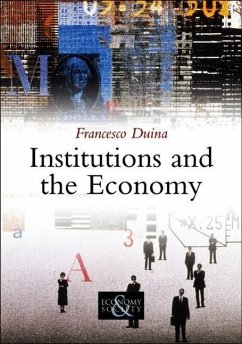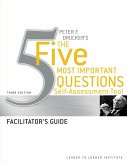Clear and concise book that explains how the functioning and shape of the economy depend upon social institutions.
Reveals the crucial role formal and informal institutions in everyday life play in how the economy works.
Institutions are central to economic life. They have a major impact on consumer preferences, the actions and processes of firms, levels of wealth and poverty in countries, the growth of international trade, and much more. Indeed, none of the preconditions for economic activity - such as the existence of buyers and sellers, recognizable goods and services, and the information we need to make choices - would be in place without institutions. Institutions, then, do more than support economic life: they enable and shape it.
These insights challenge some of the most basic postulates on modern economic theory and are at the heart of many of the most exciting works in economic sociology. This book examines the role of institutions - defined as the formal and informal rules and practices that surround us as we go about our daily lives - in the economy. Illuminating complex ideas with carefully selected, vivid examples, the investigation focuses on economic activity as it unfolds at the individual, organizational, national, and international levels.
This accessible and engaging book will be essential reading for students of economic sociology, and all those interested in the intimate relationship between institutions and the economy.
Reveals the crucial role formal and informal institutions in everyday life play in how the economy works.
Institutions are central to economic life. They have a major impact on consumer preferences, the actions and processes of firms, levels of wealth and poverty in countries, the growth of international trade, and much more. Indeed, none of the preconditions for economic activity - such as the existence of buyers and sellers, recognizable goods and services, and the information we need to make choices - would be in place without institutions. Institutions, then, do more than support economic life: they enable and shape it.
These insights challenge some of the most basic postulates on modern economic theory and are at the heart of many of the most exciting works in economic sociology. This book examines the role of institutions - defined as the formal and informal rules and practices that surround us as we go about our daily lives - in the economy. Illuminating complex ideas with carefully selected, vivid examples, the investigation focuses on economic activity as it unfolds at the individual, organizational, national, and international levels.
This accessible and engaging book will be essential reading for students of economic sociology, and all those interested in the intimate relationship between institutions and the economy.
"I have been waiting a long time for a book like this. It's a fantastic overview of the institutionalist approach to economic sociology - the best discussion yet about how institutions affect the economy at the individual, organizational, national, and international levels. It is beautifully written and loaded with great examples. Who would have thought that paying a toll on a highway or buying a shirt could shed so much light on how institutions affect economic behavior? This is a wonderful book for any course in economic sociology. But I hope that organizational theorists, political scientists, and economists read it too. There is much to learn here for everyone." -- John L. Campbell, Dartmouth College and Copenhagen Business School
"Institutions and the Economy is very insightful and straightforward in addressing the complex topic of institutions from an economic sociology point of view. Duina brings not only a tremendous amount of breadth but also depth, as he builds from a strong introduction into the current debates of the impact of institutions on individuals, organizations, countries, and the international economy." -- Ruth Aguilera, University of Illinois at Urbana-Champaign
"Institutions and the Economy is very insightful and straightforward in addressing the complex topic of institutions from an economic sociology point of view. Duina brings not only a tremendous amount of breadth but also depth, as he builds from a strong introduction into the current debates of the impact of institutions on individuals, organizations, countries, and the international economy." -- Ruth Aguilera, University of Illinois at Urbana-Champaign








